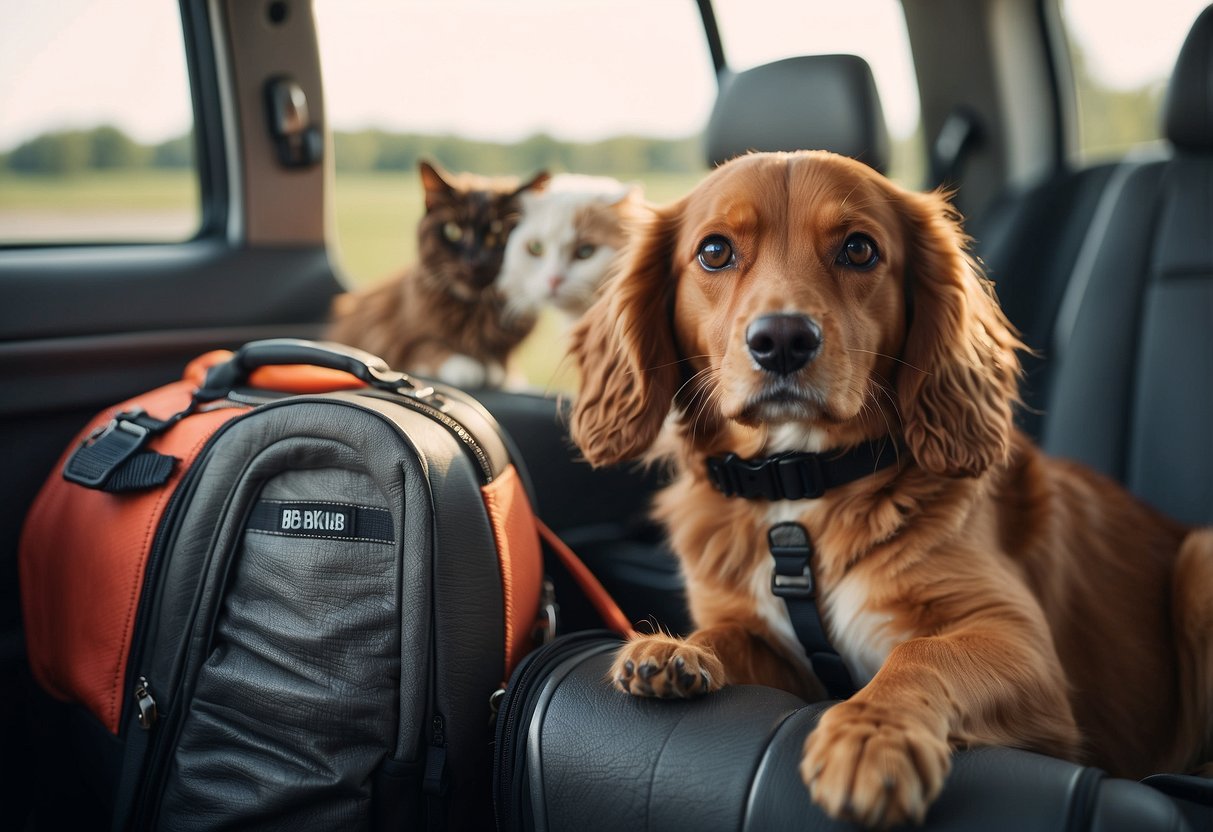
Preparing Your Pet for Travel
Ensuring your pet is well-prepared for travel involves both behavioral training and addressing health and safety needs. You’ll find guidance on these critical steps below.
Behavioral Training Tips
Begin by acclimating your pet to the carrier or travel crate well before the trip. Place the carrier in your home, encouraging your pet to explore it voluntarily. You can use treats and toys to make it a positive space.
Practice short trips in the car to help your pet get used to the motion and sounds of travel. Gradually increase the duration of these trips. Consistent training is essential to reduce anxiety and ensure your pet feels secure.
Patience and positive reinforcement play a crucial role. Rewards like praise or treats for calm behavior can significantly ease the transition for your pet. Avoid punishment, as it can increase stress and make travel a negative experience.
For pets prone to anxiety, consider pheromone sprays or consult your vet about calming supplements. Familiar blankets or toys can also provide comfort during travel.
Health and Safety Considerations
Schedule a veterinary check-up before traveling. Ensure your pet is up-to-date on vaccinations and obtain a health certificate if required for your destination. Discuss any specific health concerns with your vet, such as motion sickness or anxiety.
Pack a travel kit with essentials: food, water, a first-aid kit, and any medications. Maintain your pet’s regular feeding schedule and keep fresh water available. Hydration is vital, especially during long journeys.
Proper identification is crucial. Attach an ID tag with contact details to your pet’s collar and consider microchipping for added security. Ensure your pet’s carrier is well-ventilated and spacious enough for comfort.
During travel, never leave your pet alone in a parked vehicle, as temperatures can become dangerous quickly. Use a pet seatbelt harness or secure carrier to prevent injuries during sudden stops. Always plan for regular breaks to allow your pet to stretch, relieve itself, and get some fresh air.
Necessary Paperwork and Documentation
Traveling with pets involves more than just packing their favorite toys and treats. Specific documentation and records are necessary to ensure a smooth journey, including vaccination records and proper identification for your pet.
Vaccination Records
Pet owners must carry up-to-date vaccination records when traveling. Airlines and borders often require proof of rabies vaccinations. Some locations might mandate additional vaccines, such as for distemper or parvovirus, especially if there have been recent outbreaks.
Veterinarians provide a health certificate confirming your pet’s vaccinations are current. This certificate typically needs to be issued within a certain timeframe before travel, often 10 days. Keep this paperwork readily accessible, as you may be asked to present it at multiple checkpoints.



